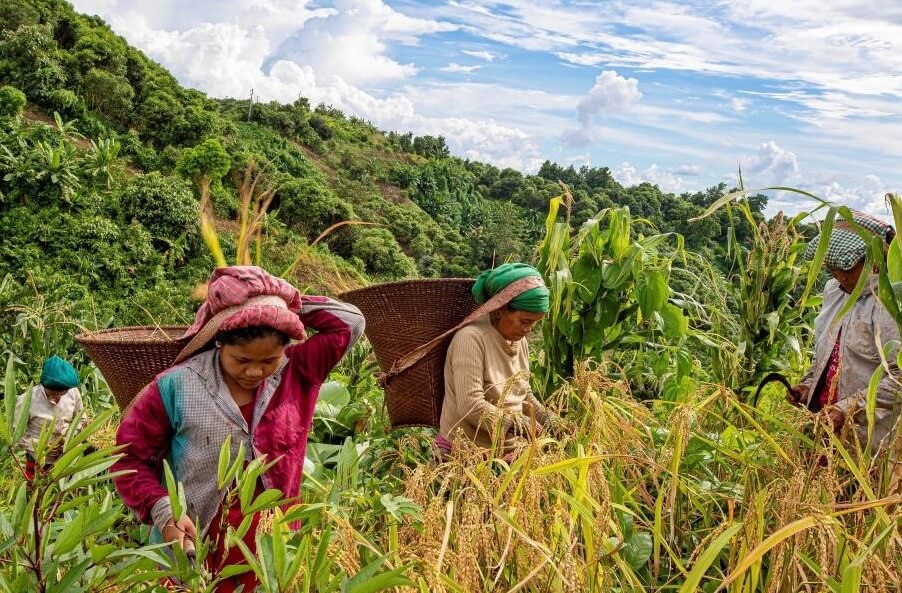Unlocking the Potentiality of Agro-Tourism in Bangladesh

By Md. Akhteruzzama
Bangladesh, a country with a rich agricultural heritage and diverse natural landscapes, has immense potential to leverage agro-tourism as a catalyst for socio-economic transformation. Agro-tourism, which involves visiting agricultural farms to experience farming activities, rural life, and natural beauty, can provide multiple benefits, including economic growth, cultural preservation, and sustainable development. This article explores how agro-tourism can reshape the rural socio-economic landscape of Bangladesh.
Agro-tourism offers farmers an additional source of income, reducing their dependence on traditional agriculture. By opening their farms to tourists, farmers can earn revenue from entry fees, guided tours, accommodation, and the sale of farm products. This diversification helps mitigate the risks associated with fluctuating agricultural prices and climatic challenges.
Developing agro-tourism requires a range of services, including hospitality, transportation, and guiding. This creates employment opportunities for residents, particularly for women and youth. By fostering local entrepreneurship, agro-tourism stimulates the rural economy and reduces unemployment.
Increased tourist influx necessitates the improvement of rural infrastructure, such as communication, electricity, and sanitation facilities. Government and private sector investments in these areas not only enhance the tourism experience but also benefit the local population by improving their quality of life and access to services.
Agro-tourism allows tourists to experience and appreciate the unique cultural practices of rural Bangladesh, including traditional farming techniques, folk music, dance, and cuisine. This encourages the preservation of cultural heritage, as farmers and artisans gain recognition and financial incentives to maintain their traditions.
The collective effort required to develop and sustain agro-tourism initiatives fosters community cooperation and solidarity. Villagers work together to create a welcoming environment for tourists, leading to stronger social ties and a sense of pride in their cultural identity.
Agro-tourism promotes environmentally friendly farming practices as tourists are often attracted to organic and sustainable agricultural practices. Farmers adopt these practices to meet the expectations of eco-conscious visitors, leading to reduced use of hazardous chemical fertilizers and pesticides and promoting soil health and biodiversity.
The tourism industry relies on the preservation of natural landscapes and resources. Agro-tourism incentivizes rural communities to protect their natural environment, including forests, rivers, and wildlife, ensuring the sustainability of their livelihoods.
While the potential benefits of agro-tourism are significant, there are challenges to its development, such as inadequate infrastructure and accessibility. Addressing these issues requires coordinated efforts between the government and private sector to invest in rural development projects, improve transportation networks, and provide training for local communities.
Raising awareness about agro-tourism destinations in Bangladesh is crucial for attracting both domestic and international tourists. Developing effective marketing strategies, utilizing digital platforms, and partnering with travel agencies can help promote agro-tourism. Showcasing success stories and the unique experiences offered by rural areas can draw more visitors.
Maintaining high standards of service and authenticity is essential for the success of agro-tourism. Establishing guidelines and certification programs for agro-tourism operators can ensure that tourists have a memorable and enjoyable experience. Providing training and capacity-building programs for farmers and rural entrepreneurs can enhance their skills and knowledge.
Last of all agro-tourism has the potential to revolutionize the rural socio-economic scenario of Bangladesh by creating economic opportunities, preserving cultural heritage, and promoting environmental sustainability. With strategic planning, investment, and community involvement, agro-tourism can become a powerful tool for rural development, offering a brighter future for the rural population of Bangladesh. By embracing this innovative approach, Bangladesh can showcase its rich agricultural and cultural heritage to the world while improving the livelihoods of its rural communities.
Md. Akhteruzzama is Former Executive Director Cotton Development Board and Advisor QC, Supreme Seed Co. Ltd.

